 Menu
Menubbc.com I December 5, 2015
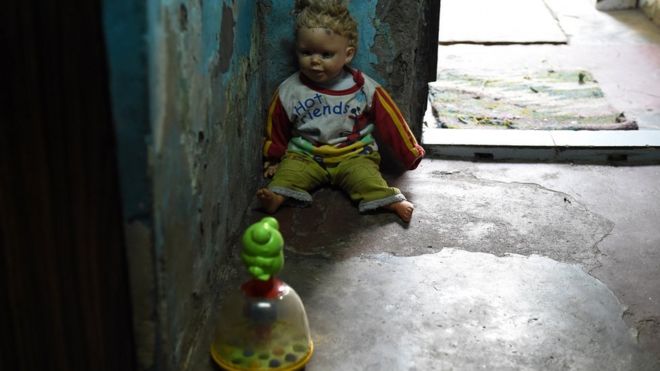
A four-year-old girl was brutally raped in Delhi in October
India is home to the largest number of sexually abused children in the world, and on Friday, a top female news presenter revealed how she was sexually abused as a child. But there is general reluctance to talk about the topic. Now, an MP, Rajeev Chandrasekhar, is trying to change that, writes the BBC's Geeta Pandey in Delhi.
At an "open house" in Delhi on "Why we need to start talking about child sexual abuse and protect our children" earlier this week, Mr Chandrasekhar described the problem as an "epidemic".
"Child sexual abuse has taken epidemic proportions in India. It is a problem that has been veiled by a culture of secrecy and denial and fostered by government apathy," he said.
"Most people think that child sexual abuse is not as pervasive as I say, but the data proves otherwise."
He is right – according to a 2007 study conducted by India's ministry of women and child development, 53% of children surveyed said they had been subjected to some form of sexual abuse.
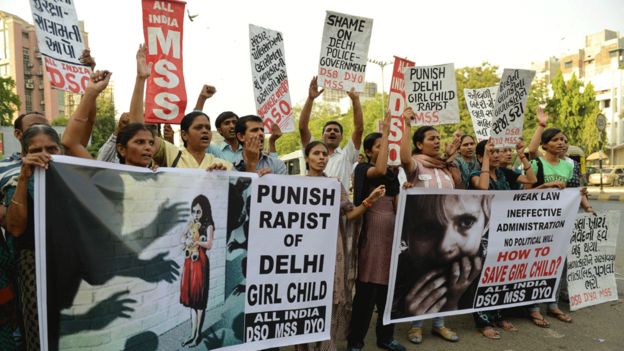
Thousands of children are raped and sexually assaulted in India every year
The study revealed that contrary to the general belief that only girls were abused, boys are equally at risk.
It also pointed out that a substantial number of abusers were "persons in trust and care-givers" which included parents, relatives and school teachers.
An MP from the southern city of Bangalore, Mr Chandrasekhar began talking about child sexual abuse in January 2014 when he was approached by the mother of a three-year-old who had been raped in her school.
"She asked me for help because the police were not registering her complaint. I was horrified. When I called a state government minister, he said: 'It's not our fault, it's the parents' fault. Who asked them to pick that school?'," he says.
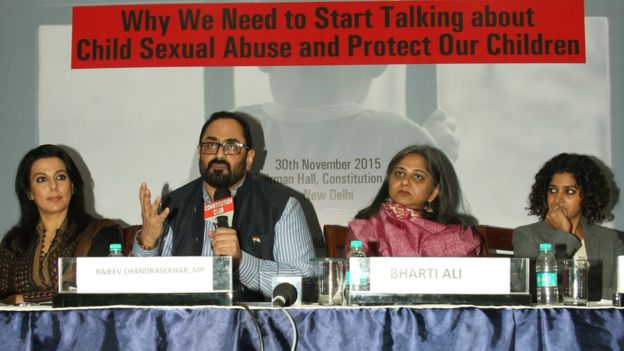
MP Rajeev Chandrasekhar (second from left) describes child sexual abuse as an epidemic
Since then there have been several high-profile cases of children being sexually assaulted in Bangalore, Delhi and across India – not surprising considering a child is sexually abused every three hours in the country.
To break the silence over the issue, Mr Chandrasekhar started a petition onchange.org in September, asking Prime Minister Narendra Modi to "make the safety of our children a priority and to commit to a roadmap to protect our children from sexual abuse".
On Tuesday, he met the Women and Child Welfare Minister Maneka Gandhi to hand over the petition which has been signed by more than 182,000 people.
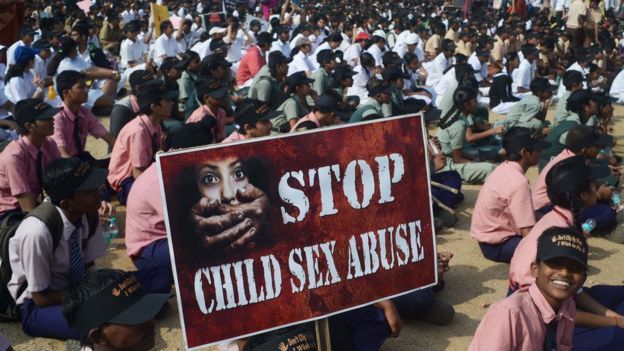
Campaigners say parents are generally reluctant to admit child sexual abuse and incest is almost always hushed up
Despite the staggering statistics, Mr Chandrasekhar's attempts to talk about child sexual abuse have not gone down well with many and he has been trolled on Twitter for months for being "part of a Western conspiracy to defame India".
That, campaigners say, is the biggest hurdle in fighting incest and child sex abuse.
Anuja Gupta, who heads RAHI (Recovering and Healing from Incest) Foundation – India's first incest and child sexual abuse response organisation – says parents are generally reluctant to admit child abuse, and sexual abuse of children by family members is rarely reported.
This "conspiracy of silence", Ms Gupta says, has serious consequences for the victims, their families and society as a whole.
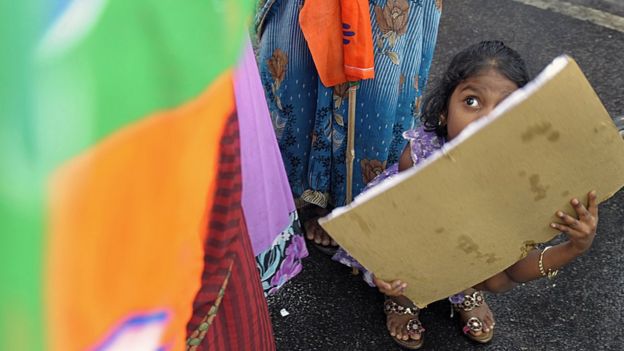
Campaigners say child safety is of utmost importance
"The sheer helplessness and the trauma of the victim is debilitating. It's very difficult for a child to come forward and say that he or she was abused, and the fact that nobody did anything about it is very damaging for them."
In 2012, India introduced the Protection of Children from Sexual Offences Act (POCSO) to deal with cases of child sexual abuse, but it took the authorities two years to record the first cases under the law.
In 2014, 8,904 cases were registered under the new law, but in addition, for the same year, the National Crime Records Bureau recorded 13,766 cases of child rape; 11,335 cases of "assault on girl child with intent to outrage her modesty; 4,593 cases of sexual harassment; 711 cases of "assault or use of criminal force on girl child with intent to disrobe"; 88 cases of voyeurism and 1,091 cases of stalking.
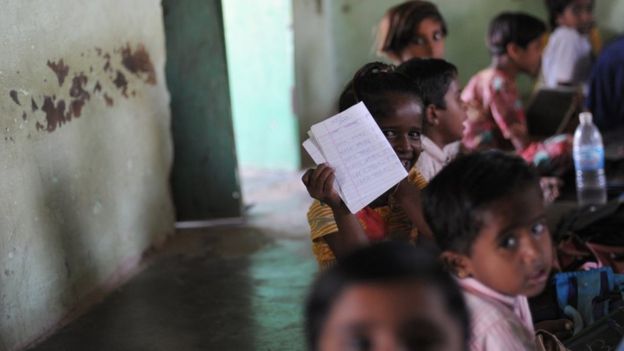
India has more than 400 million children
The statistics show that POCSO was not even invoked in most cases of child sexual assault.
Child rights activists say it is a well-framed law but there are huge gaps in its implementation and the conviction rate under the act is a paltry 2.4%.
Legal expert Swagata Raha says that happens because very often the victims are pressurised by the accused – invariably known to the child or related to them – to retract, so the case falls apart.
Says Mr Chandrasekhar: "Our institutions are far from child-friendly. The police do not have the sensitivity to deal with children, there are no dedicated prosecutors, and the judiciary is over-burdened. And this creates an ecosystem that is hostile and intimidating for the child.
"We owe it to our children to ensure a safe childhood for them. This must stop."